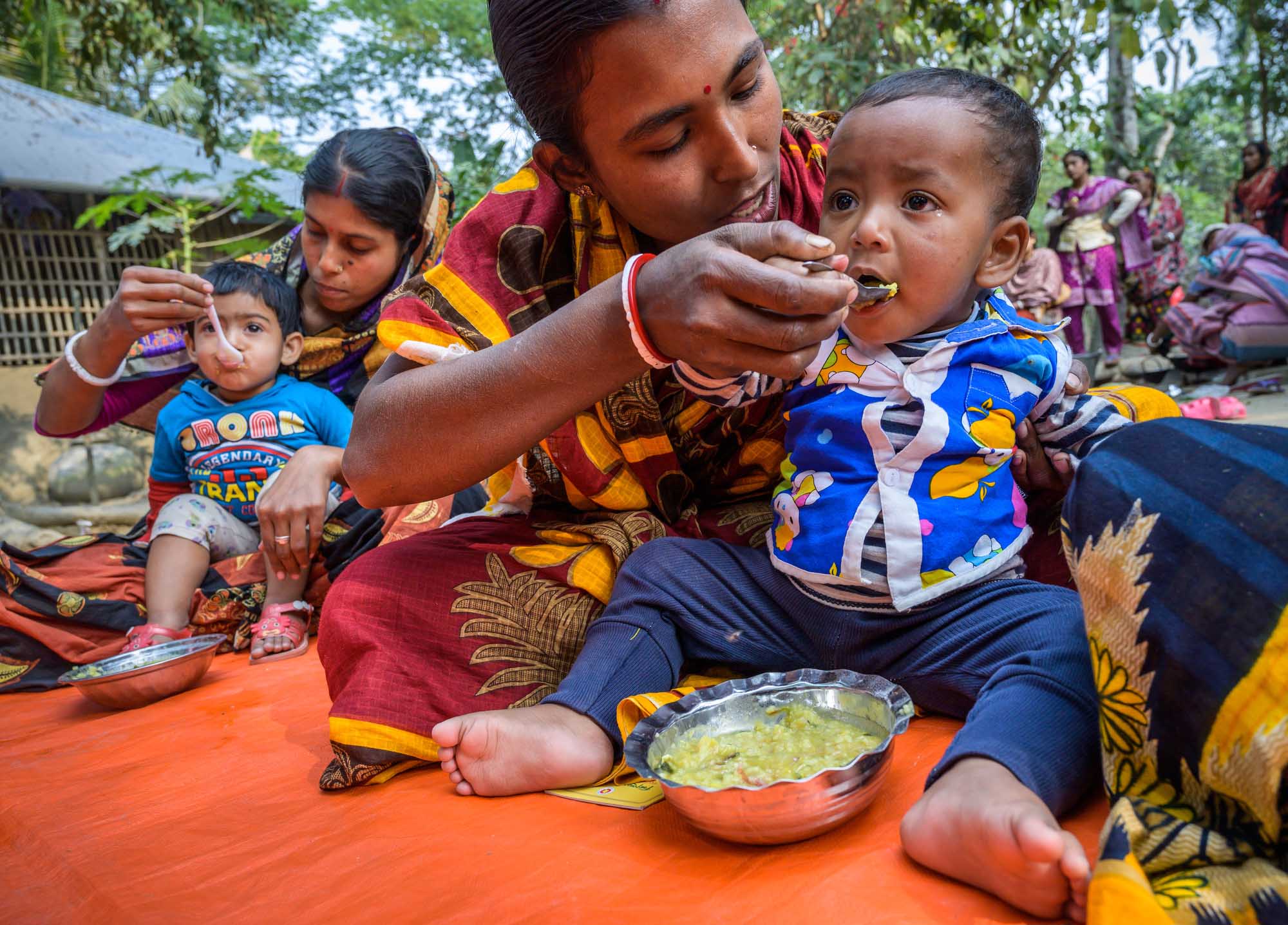“… and if you spend yourselves in behalf of the hungry and satisfy the needs of the oppressed, then your light will rise in the darkness, and your night will become like the noonday.” Isaiah 58:10 (NIV)
In southwest Bangladesh, something as simple as making sure your newborn baby gets enough of the right food to eat can be a problem.
In this part of the world, climate change is taking a big toll: Frequent natural disasters and rising salinity make agricultural work difficult and limit other available job opportunities. As a result, nutritious diets – for parents and children alike – can seem out of reach. That leads to a high rate of diarrhea diseases, dehydration, and malnutrition.
Health and nutrition indicators in this region reflect these challenges: 26.8 percent of children under 5 are stunted. One of every five women between the ages of 15 and 49 are underweight.
Nutrition for the first 1,000 days
That’s why Nobo Jatra – a five-year development and food security program implemented by World Vision and funded by USAID – holds regular courtyard nutrition sessions in villages across southwest Bangladesh. At these sessions, mothers gather to enjoy community, feed their children together, and learn from one of Nobo Jatra’s nutrition facilitators.

A nutritious meal from mom. (©2019 World Vision/photo by Jon Warren)
At this free feeding demonstration, the moms feed their babies meals with fresh, local ingredients: eggs, rice, spinach, tomatoes, squash, cauliflower, limes, plums, carrots, bananas, potatoes, pumpkin, and lentils. They’re also quizzed on the benefits of the ingredients to a growing child:
“What kind of vitamin is in the pumpkin?” asks a facilitator. The women respond: “Vitamin A!”
“What happens with a Vitamin A deficiency?” the facilitator asks. “There is harm to the eyes,” they respond.
These groups meet once a month during the children’s first 1,000 days of life – the most critical to their nutrition and growth, as they include pregnancy and the period between exclusive breastfeeding and introducing solid foods.
Nutrition classes build knowledge — and community
In many ways, the sessions bring the care of a clinic right into a nearby courtyard: In addition to nutrition and feeding techniques, facilitators go over proper hygiene, postnatal care, and more.
“The number one thing we want to do with the Nobo Jatra program is to reduce stunting in children under 2,” says Saeqah Kabir, Knowledge Management and Communications Manager for Nobo Jatra at World Vision Bangladesh. “I believe we are on track to achieve this.”
The mothers in the program appreciate the hands-on training, but they also enjoy simply gathering with other moms:
“Because of these types of interventions, we get together with our neighboring sisters,” says the host of one courtyard session, Monmohini Roy. “Before we weren’t like that. The babies can meet other babies and they are eager to eat more.”

Dreams for the future
Monmohini has big dreams for her 17-month-old daughter, Mimi, who has benefited from Nobo Jatra’s interventions: “I want my daughter to work with the government.”
She also wishes that even more children and families across Bangladesh could access programs like Nobo Jatra.
“That would be great,” she says. “Then Bangladesh would be a healthier nation.”
The name Nobo Jatra translates to “new beginning.” It’s a fitting name, given that the program is helping newborns across southwest Bangladesh begin their lives with the best chance to thrive.
Support programs like this that help families lift themselves out of poverty.
Top photo: Mothers feeding their children at nutrition class in Bangladesh. (©2019 World Vision/photo by Jon Warren)



2 Comments